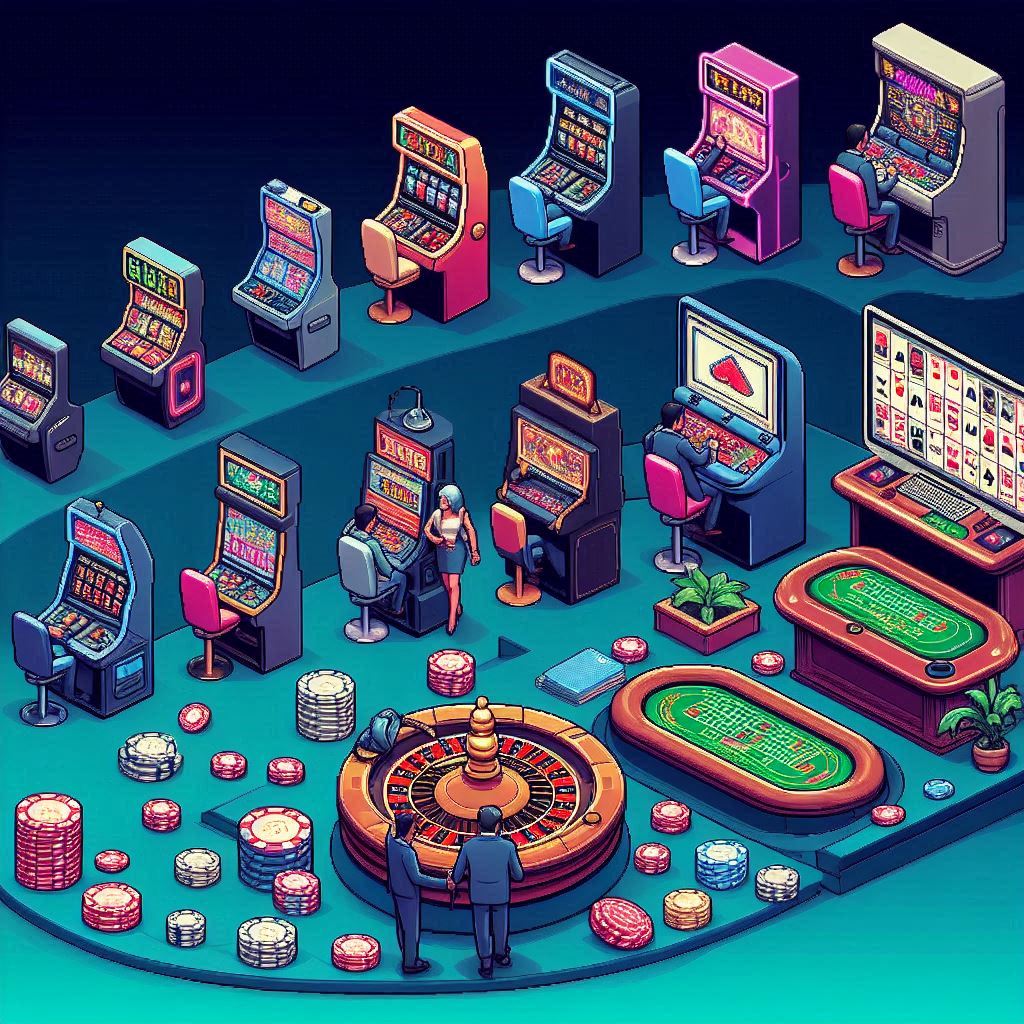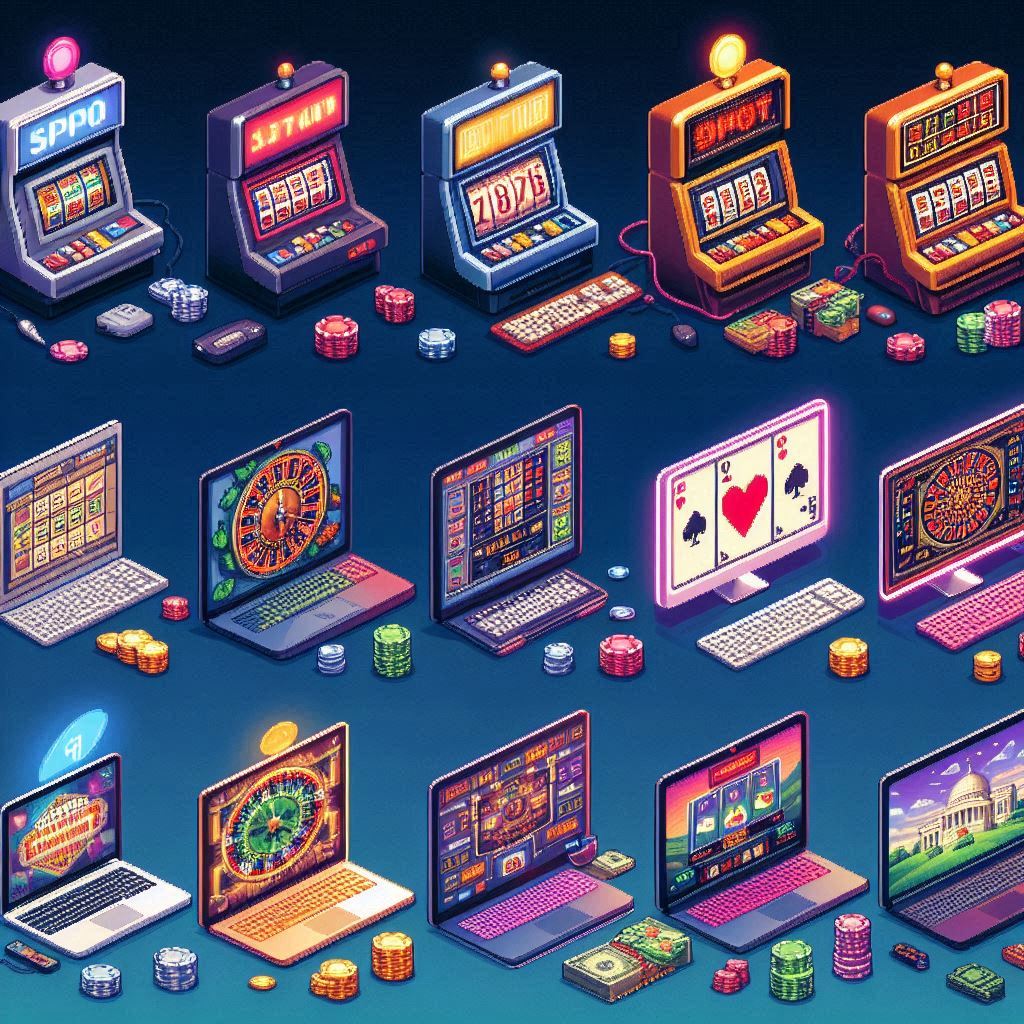The Evolution of Online Casino Software Providers
When the internet was in its early stages, the idea of playing casino games on a computer, connected via dial-up modems, seemed far-fetched. The mid-90s marked the dawn of online casinos. Several pioneering companies saw a golden opportunity and began developing the first generation of casino software. MicroGaming developed the first fully functional gambling software in 1994. Early providers faced numerous challenges, from graphics quality to secure payment systems. But the online gambling industry was set up.
The Growth Period 2000s

The MicroGaming produced a variety of game types, from slots and table games to progressive jackpots. In 2004, MicroGaming leaped by developing the first mobile casino software, enabling players to gamble on the go. The release of Mega Moolah, a progressive jackpot game, brought massive popularity due to its substantial payouts.
Founded in 1996, NetEnt (originally Net Entertainment) focus on high-quality graphics and engaging gameplay allowed it to distinguish itself in a competitive market. By 2002, NetEnt had launched its first online casino, with a lot of slot games that rapidly gained a loyal following. Their titles became some of the most played in the industry.
Playtech’s first casino product went live in 2001. The company had become a notable name on the London Stock Exchange. Diverse offerings, ranging from slots and table games to poker and live casino options, have allowed Playtech to cater to a broad audience, ensuring comprehensive gaming experiences.
Cryptologic was important in incorporating secure online transactions into casino gaming. By 1996, they had already expanded into casino software development, providing reliable and secure environments for online casinos. Cryptologic’s commitment to security and user trust gave it a competitive edge, attracting numerous operators to use its platforms.
PartyGaming launched its first online casino in 2001 and introduced the world to PartyPoker. It became one of the world’s largest poker sites, bolstering PartyGaming’s profile. By 2005, the company was listed on the London Stock Exchange.
The transition from dial-up to broadband internet provided users with faster, more reliable connections, facilitating smoother and more enjoyable gaming experiences. Advances in graphics technology and software development tools allowed providers to create more visually appealing and interactive games.
Regulatory environments began to adapt, allowing for more formally recognized and safer online gaming experiences. This helped increase player trust and encouraged more individuals to participate in online gambling.
The introduction and enhancement of e-wallets, prepaid cards, and electronic banking options made it easier and safer for players to deposit and withdraw funds. These advancements provided a convenient, secure way to manage finances.
New Era 2010s
Evolution Gaming pioneered live dealer games, a format that brought a new level of immersion and realism to online gambling. Their focus on high-quality streaming, professional dealers, and diverse game offerings set a new standard within the industry. Providing games like live blackjack, roulette, and poker, Evolution Gaming connected land-based and online casinos.
Yggdrasil Gamings games are noted for their striking visuals, unique themes, and advanced mechanics. Yggdrasil has introduced features such as in-game promotional tools and social sharing capabilities. This allowed them to carve out a niche, appealing to players and operators.
Pragmatic Play is known for its versatile portfolio that includes slots, live casino, bingo, and more. Since Pragmatic Play’s launch in 2015, the company has excelled in producing high-quality games with consistent themes, engaging gameplay, and attractive aesthetics. Pragmatic Play prioritized mobile compatibility, ensuring that their games perform seamlessly across various devices.
Red Tiger Gaming quickly garnered a reputation for its high production values and innovative game features. Red Tiger’s acquisition by NetEnt in 2019 further expanded its influence and reach. Known for daily jackpots and distinctive slot designs, Red Tiger has offered many memorable gaming experiences.
Big Time Gaming has brought a new take on innovative mechanics like the Megaways system. This feature has revolutionized slot gameplay. It significantly enhances player engagement by introducing a dynamic and variable reel structure and has been widely adopted by other developers.
The advent of HTML5 technology enabled developers to create high-quality, cross-platform games that perform well on both desktop and mobile devices. This move away from Flash ensured better compatibility, security, and performance. Mobile gaming saw explosive growth, with a substantial increase in the number of players accessing games via smartphones and tablets.
Regulation changes prompted software providers to adopt more stringent measures for player protection, responsible gambling, and data security. The use of advanced encryption technologies and secure payment methods became standard, reinforcing player trust in online gambling platforms.
Current 2020s Scene
Key developments include the increasing use of artificial intelligence (AI) and machine learning, which allow for more personalized gaming experiences. Analyzing player behaviors and preferences, AI can recommend games, tailor promotions, and optimize user interfaces to enhance engagement.
Virtual reality (VR) and augmented reality (AR) technologies offer players experiences by simulating real-world environments and interactions. VR casinos transport players to a lifelike gaming environment where they can walk around, interact with other players, and play games as if they were in a physical casino. AR enhances the gaming experience by overlaying digital information in the real world, providing a blend of reality and virtual elements.
With the proliferation of smartphones and tablets, players increasingly prefer to access games on mobile devices. Software providers focus on creating mobile-responsive games that offer seamless, high-quality experiences across various screen sizes and operating systems. This trend has led to the development of mobile-first games, designed specifically for play on handheld devices.
Pragmatic Play has continued to innovate in the 2020s, focusing on expanding its game portfolio and incorporating advanced technologies. The company’s slots, live casino games, and bingo products offer engaging experiences across multiple devices.
Red Tiger Gaming, now part of the NetEnt family, uses its partnership to continue delivering high-quality, innovative games. Their daily jackpots and unique game designs appeal to a wide audience, and their focus on player engagement remains a core aspect of their strategy.
Online casinos implement advanced encryption technologies, multi-factor authentication, and secure payment methods to protect player data and ensure fair play. Regulatory bodies have introduced stricter guidelines, prompting software providers to adopt more transparent and responsible gaming practices.
Blockchain technology and cryptocurrencies offer enhanced security, transparency, and efficiency in transactions. Cryptocurrencies like Bitcoin and Ethereum are gaining popularity among players, providing an alternative to traditional payment methods. Blockchain technology enables provably fair gaming, ensuring that game outcomes are random and transparent.
Players expect tailored content, promotions, and game recommendations based on their preferences and behaviors. Software providers use data analytics and AI to create customized experiences, enhancing player satisfaction and retention. Personalized bonuses, loyalty programs, and game recommendations are among the strategies employed to achieve this level of customization.

